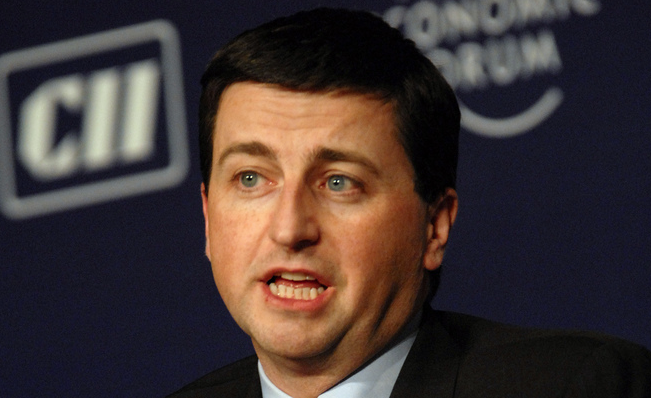Why Labour’s critique of migration within the EU must stop

 While the columns in newspapers criticising Cameron’s referendum commitment continue to be written, I nevertheless have a nagging fear – that while Cameron’s strategy may be ill-advised, the main pro-EU party in the UK, Labour, has nothing really to say about the EU than to defend the status quo. This is not going to be enough for the battles to come.
While the columns in newspapers criticising Cameron’s referendum commitment continue to be written, I nevertheless have a nagging fear – that while Cameron’s strategy may be ill-advised, the main pro-EU party in the UK, Labour, has nothing really to say about the EU than to defend the status quo. This is not going to be enough for the battles to come.
Thanks to numerous replies on Twitter I was directed to a couple of recent speeches – by Douglas Alexander and Emma Reynolds, and an interview with Jonathan Powell. These are all rather normal UK-EU fare, liberally sprinkled with phrases about reform.
But the alarm bells really started to ring when reading Douglas Alexander’s words on pages 10 and 11 of his speech about migration within the EU. Some of his words (although I advise reading his words in full in the original document):
We all hear about the perceived strain that certain aspects of the EU are putting on some local communities here in the UK. For many, this relates specifically to the operation of the Free Movement Directive. […] Enlargement brings enlarged freedom of movement, which underpins the many benefits of the single market but also creates certain pressures.
Labour has recently recognized these pressures in a way we haven’t in the past. Back in June Ed Miliband set out the new approach we would need in this area. Labour has already set out that it regrets not implementing the full transitional arrangements that were available to it during the last round of EU enlargement and would do differently now. We believe the EU should look to go further than that and look at ways of giving member states more flexibility over the transitional arrangements that they sign up to – both to relax them more when those countries see fit, but also to include the possibility of tightening them further if necessary.
First of all, there is a grain of truth in here – that there were pressures on the UK, especially between 2004 and 2007 or so. This was because only 3 countries – the UK, Ireland and Sweden – opened their borders to workers from the new Member States. Also it’s worth recalling that the population of the countries that joined in 2004 totalled 75 million people, more that have ever joined in one go before. Further, the way the UK state dealt with the consequences then (and indeed, still) could have been better – new migrants produce babies, and the UK state has not been able to organise its schools to cope. But of course it is easier for Alexander to direct his fire at the migrants themselves.
By 2007 a lesson had already been partially been learned – with the accession of Romania and Bulgaria (total population about 29 million), transition arrangements were put in place in the UK in the same way as across the rest of the EU. The likely impact will hence be limited when these restrictions end next year (see The Guardian, and Commission analysis of this), and Romanians and Bulgarians will be able to move anywhere in the other 25 Member States, not just 3 countries. 2004 it is not.
Looking further into the future, what enlargement is there in the pipeline? Croatia (pop. 4.2 million), Iceland (pop. 320000), Macedonia (pop. 2.0 million) – nothing close to the scale of 2004. Yes, there is the theoretical issue of Turkey, but with Erdogan leading Turkey further away from the EU (calling for the death penalty!) this is so far away as surely to not constitute a worry for the moment.
So instead Douglas Alexander, rather than banging on about this issue, could essentially close the issue down and stop talking about this stuff: the lessons have been learnt. The EU will not enlarge in a big bang enlargement again. Migration restrictions will not be lifted together with only 2 other countries again. The enlargements on the horizon are countries so small that the impact will not be noticeable in the UK.
Why then, does he keep banging on about this issue, and Ed Miliband has also mentioned it. Time for that approach to stop.
They are not really pro-Europeans to begin with, they, like most British politicians, follow the herd rather than leading it, maybe that’s what they learnt in PPE courses in Oxbridge I wonder?
As someone with great interest in the issue of free movement in the EU, I found it really depressing when NuLab were in power to hear the ‘tough border control’ rethoric they used at every opportunity. Even the long queues at border controls (ironically this is something that has actually improved with the Tories, sad but true) became opportunities for political propaganda about how the reason for the long queues was how ‘tough and macho’ their border controls were so that only those who we, Big Brother UK Border Police deem to be valuable for the UK will be let in. How depressing. In fact, one of the few advantages of having a Tory gov is that they do not feel the need to engage in this depressing rethoric. I even remember a piece of PR from an unpresentable character running the UKBA at the time, I forgot his name, yep I just googled it, it was a chap called Phil Woolas who boasted about a “ring of steel” no doubt inspired through nostalgia for the days of the Iron Curtain
http://www.telegraph.co.uk/news/worldnews/europe/france/5760397/Tighter-border-controls-to-stop-immigrants-from-Calais.html
With this kind of Labour track record, actually the comments from D Alexander almost seem really progressive by comparison…
Completely disagree. 13 years old Labour and open immigration has completely destroyed much of the country.
@ Richard
You do realized what you just said actually strengthen the case, not weakens it. Think about it before replying.
@ Ralf
You do realize that these countries are having problems, thus we see a “rise in the right.” This is just not the UK. All of Europe is finding out the consequence of out of control immigration.
Switzerland is the best country to live in and has very strict immigration (hopefully to get stricter and remove asylum).
Unfortunately due to not moving fast and hard enough to the Right will have a much harder struggle, then say, France.
Why have I seen little UK discussion about the 15 to 16 EU countries which do not restrict the free movement of workers, if they come from Bulgaria or Romania?
A maximum of seven years of restrictions on one of the basic rights in the internal market was scandalous enough. Competing calls for further restrictions in the UK are even worse.
Calls from leading politicians to help mobile workers find jobs, schools for their children and other services would be most encouraging.
@Richard – yes, good point.
The birth rate started climbing in 2000 so the pressure on school places cannot solely be attributed to migration.